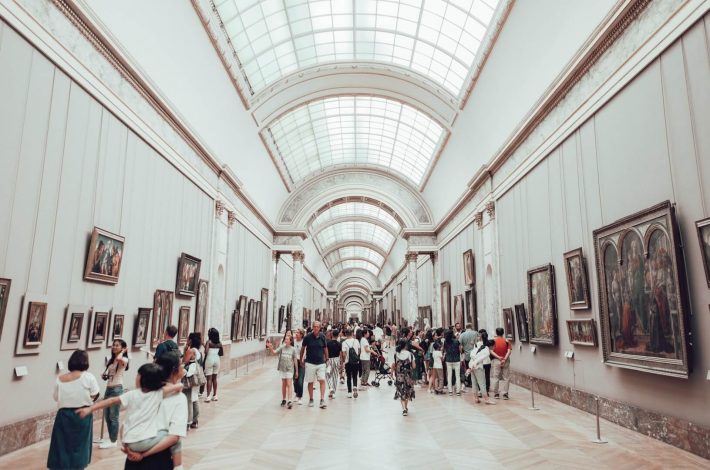
Within the hallowed halls of museums worldwide, a profound and nuanced debate reverberates through time. It is a debate that revolves around the artifacts, artworks, and historical objects carefully preserved within these institutions. Museums, long regarded as the custodians of our shared human history and culture, often house items that are steeped in controversy. This article embarks on a journey to explore the ongoing debate over controversial museum holdings, peeling back the layers to reveal the intricate ethical, cultural, and historical dimensions that make this issue so complex.
The Role of Museums in Preserving Controversial Artifacts
Museums have historically served as vital repositories of cultural and historical heritage, charged with the sacred duty of preserving and presenting artifacts that offer profound insights into the human experience. However, this responsibility presents a unique challenge: determining what to include in their collections and how to interpret it. Controversial museum holdings encompass a vast array of items, ranging from artworks with colonial connections to relics entwined with cultural sensitivities. Each of these holdings presents a distinct set of ethical dilemmas.
Ethical Tightrope: Balancing Preservation with Sensitivity
At the heart of the matter lies the ethical tightrope that museums must traverse. They are entrusted with the task of preserving history, even when it delves into the darkest and most uncomfortable chapters of our past. Yet, they must do so with a profound respect for the feelings and concerns of the communities affected by these artifacts.
A poignant question emerges: “Do museums have an ethical obligation to display items that may evoke pain and suffering?” The answer remains elusive, as the debate endures, grappling with the delicate balance between historical preservation and emotional sensitivity.
The Question of Repatriation: Rectifying Historical Injustices
In recent years, the term “repatriation” has gained prominence in the discourse surrounding controversial museum holdings. Repatriation involves the act of returning artifacts and remains to their places of origin or to the communities to which they inherently belong. These holdings have often triggered impassioned discussions on whether they should indeed be repatriated.
Proponents of repatriation argue that it represents a moral imperative to rectify historical injustices and restore agency to communities from which these items were wrested, often during the eras of colonialism or conflict. Critics, on the other hand, express concerns over the potential loss of invaluable historical and cultural context should these artifacts be removed from museum collections.
Cultural Sensitivity and Inclusivity
Addressing Cultural Appropriation: A Thorny Issue
Another facet of the ongoing debate revolves around the concept of cultural appropriation. Museums have faced substantial criticism for exhibiting items that were procured through ethically dubious means, such as looting or unauthorized acquisitions during the tumultuous days of colonialism.
This raises pertinent questions: “Should museums persist in displaying such items, and if so, how can they do so in a manner that acknowledges their cultural significance and the harm inflicted by their initial acquisition?”
Fostering Inclusive Narratives: Community Engagement
Museums today bear an increasingly crucial role in nurturing inclusive narratives that encapsulate a diversity of voices and experiences. This entails a deep acknowledgment of the perspectives of marginalized communities and affording them an opportunity to contribute to the interpretation of controversial artifacts.
In a commendable step toward inclusivity, museums are now striving to involve descendant communities and indigenous groups in the decision-making processes, ensuring that their voices are not only heard but actively incorporated into how these artifacts are exhibited and elucidated.
The Ongoing Debate and Its Impact
Public Perception and Accountability
The ongoing debate over controversial museum holdings has fundamentally altered the perception of museums within the public sphere. Museums are no longer solely regarded as passive repositories of history but are increasingly seen as institutions endowed with a profound social responsibility. This responsibility entails addressing historical injustices and catalyzing awareness of cultural sensitivities.
This heightened accountability has propelled museums into a transformative phase, one that necessitates policy changes, innovative exhibition designs, and a proactive approach to engaging with communities affected by these holdings.
The Quest for Balance: An Evolving Challenge
Unearthing the perfect equilibrium between preserving history and demonstrating cultural sensitivity stands as an enduring challenge for museums. The debate over controversial museum holdings continues to mold the very fabric of how museums operate, compelling them to perpetually reevaluate their practices and policies.
Conclusion
Within the realm of museums, the debate over controversial holdings remains a perpetual and intricate discourse. It is a conversation that demands we confront the multifaceted complexities of our shared history, the persistent echoes of colonialism, and the profound ethical responsibilities vested in institutions that safeguard these artifacts.
Museums are evolving entities, realizing that their role transcends the mere curation and exhibition of objects. They are now embarking on a delicate journey, one that traverses the fine line between preserving history and honoring the sensitivities of those whose history is on display. The ongoing debate over controversial museum holdings serves as a poignant reminder that our comprehension of history and culture is not static but is continuously shaped by our collective conscience and the ever-evolving norms of our society.